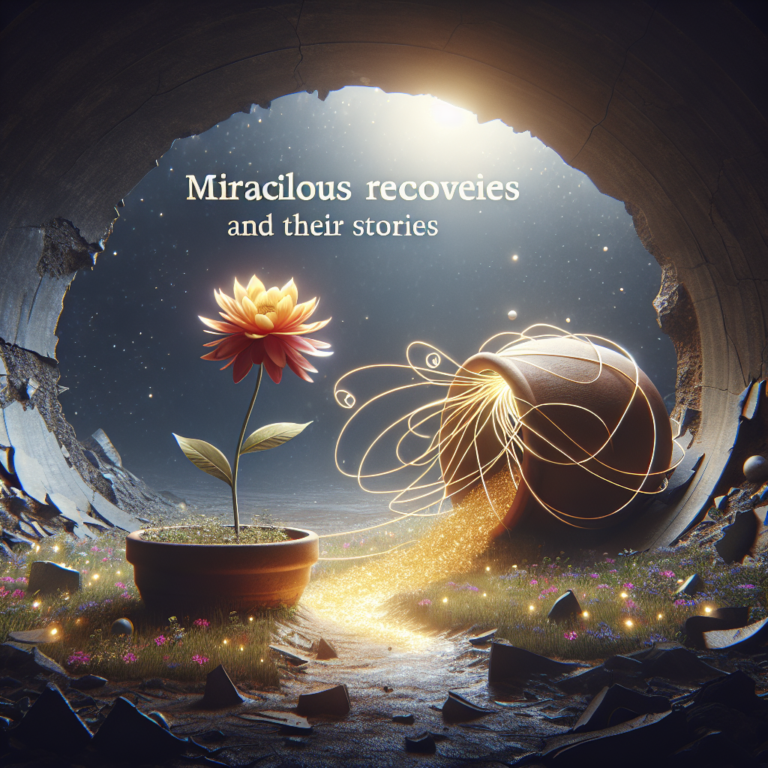How Have Innovators Changed The World With Their Ideas?
Imagine a world without electricity, phones, or cars. It’s hard to fathom, right? Well, thanks to the brilliant minds of innovators throughout history, our lives have been forever transformed. From Thomas Edison’s invention of the light bulb to Steve Jobs revolutionizing the way we communicate with the creation of the iPhone, these innovators have not only changed our day-to-day lives but have shaped the very fabric of our society. In this article, we will explore the incredible impact that these visionaries have had on the world and how their ideas continue to shape our future. Get ready to be inspired by the extraordinary power of human innovation.
Technological Innovations
The Power of the Internet
The invention of the internet has undoubtedly revolutionized the way we communicate and access information. With just a few clicks, you can connect with people from all around the world, share ideas, and gain knowledge on various subjects. The internet has made the world a smaller place, breaking down barriers and bridging gaps between cultures and continents. It has also paved the way for e-commerce, allowing businesses to expand their reach globally and providing consumers with endless options. The power of the internet has truly changed the dynamics of relationships, businesses, and society as a whole.
Revolutionizing Communication
Gone are the days of relying solely on letters and telegrams for communication. Technological innovations have revolutionized the way we communicate, making it faster, more convenient, and more accessible. With the advent of smartphones and various communication apps, staying connected with loved ones is just a tap away. Video calls, instant messaging, and social media platforms have become an integral part of our lives, enabling us to maintain relationships across vast distances. Communication barriers have been shattered, leading to a more interconnected world where ideas, cultures, and experiences are easily shared.
Automation and Artificial Intelligence
Automation and artificial intelligence (AI) have transformed industries and revolutionized the way we work. Through automation, repetitive tasks can be performed by machines, freeing up human resources for more complex and creative endeavors. AI, on the other hand, has the ability to learn and adapt, making it capable of performing tasks that were once exclusive to humans. From self-driving cars to chatbots, automation and AI have greatly enhanced efficiency, productivity, and accuracy in various sectors. However, it is important to strike a balance between human involvement and technological advancements to ensure that the human touch and critical thinking are not compromised.
Internet of Things
The Internet of Things (IoT) refers to the interconnectedness of everyday objects through the internet. This innovation has transformed the way we interact with the world around us. From smart homes and wearables to connected cars and smart cities, IoT has paved the way for a more interconnected and efficient lifestyle. With the ability to remotely control devices and collect real-time data, IoT has improved various aspects of our lives, such as home security, energy management, and healthcare monitoring. The future holds immense potential for IoT to create a seamless and intelligent network of devices, further enhancing our daily experiences.
Advancements in Healthcare
Innovations in healthcare have saved countless lives and improved the overall quality of life for individuals around the world. From the development of vaccines and immunization programs to the discovery of antibiotics and breakthroughs in disease treatment, healthcare innovations have played a crucial role in eradicating diseases, preventing epidemics, and extending the average lifespan. Medical imaging and diagnostic tools have revolutionized the way diseases are diagnosed, enabling early detection and more targeted treatments. Surgical innovations, including minimally invasive procedures and robotic-assisted surgeries, have improved patient outcomes and reduced recovery times. Moreover, digital health technologies, such as telemedicine and health monitoring apps, have made healthcare more accessible and convenient for individuals, especially in remote areas. The advancements in healthcare have truly made a significant impact on the well-being of individuals and the overall progress of society.
Transportation and Infrastructure Innovations
The Invention of the Wheel
The invention of the wheel dates back thousands of years and is considered one of the greatest technological innovations in history. The wheel revolutionized transportation, making it easier to move heavy loads and increasing the efficiency of travel. It laid the foundation for further advancements in transportation and infrastructure, shaping the development of civilizations and trade networks.
The Industrial Revolution and Steam Power
The Industrial Revolution, powered by the invention of the steam engine, transformed the world by introducing mechanized production and transportation systems. Steam power revolutionized industries, allowing for the mass production of goods and the establishment of factories. It also led to the rise of railways and steam-powered ships, accelerating trade and enabling the movement of people and goods at an unprecedented scale.
The Automobile and Mass Production
The invention of the automobile by Karl Benz in the late 19th century completely transformed the way we travel and paved the way for the mass production of vehicles. Prior to the automobile, transportation was primarily limited to horse-drawn carriages and walking. The advent of automobiles made personal transportation more accessible, efficient, and convenient. Mass production techniques, pioneered by Henry Ford and his assembly line, made cars affordable for the average consumer and led to the establishment of the modern automotive industry.
Air Travel and Space Exploration
The invention of airplanes revolutionized long-distance travel and connected people from different parts of the world. Airplanes made it possible to travel long distances in a fraction of the time compared to other modes of transportation. Furthermore, space exploration has pushed the boundaries of human achievement and our understanding of the universe. Through technological innovations, humans have been able to reach the moon, send spacecraft to other planets, and continuously explore the vastness of space.
Smart Cities and Sustainable Infrastructure
In recent years, the concept of smart cities and sustainable infrastructure has gained traction. Innovations in technology and urban planning have enabled the creation of cities that are more connected, efficient, and sustainable. Smart cities utilize data and technology to improve various aspects of urban living, including transportation, energy usage, waste management, and public services. These innovations not only enhance quality of life but also contribute to environmental sustainability by reducing resource consumption and carbon emissions.
Energy Innovations
Harnessing Electricity
The harnessing of electricity was a groundbreaking innovation that transformed the way we live and power our societies. It provided a reliable and efficient source of energy that could be easily distributed and used for various purposes. The development of electric power grids enabled the electrification of homes, businesses, and industries, leading to increased productivity and comfort in daily life.
Renewable Energy Sources
The rising concerns about climate change and the finite nature of fossil fuels have spurred innovations in renewable energy sources. Solar, wind, hydro, and geothermal energy are becoming increasingly popular and economically viable alternatives to traditional energy sources. These renewable energy sources have the potential to reduce carbon emissions, mitigate climate change, and provide sustainable, clean energy for the future.
Nuclear Power
Nuclear power has been a controversial yet significant innovation in the energy sector. It provides a high energy density and produces a minimal amount of greenhouse gas emissions. However, concerns about safety, waste disposal, and the potential for nuclear accidents have led to ongoing debates on its usage. Nuclear power remains an important part of the energy mix in many countries, and advancements in nuclear technology continue to improve safety and efficiency.
Energy Efficiency
Energy efficiency innovations aim to reduce energy consumption while maintaining or enhancing the output or services provided. From energy-efficient appliances and lighting to improved insulation and building codes, energy efficiency measures help lower energy costs, reduce carbon emissions, and conserve resources. Energy-efficient practices and technologies have become increasingly adopted in both residential and commercial settings, contributing to sustainability and cost savings.
Clean Cooking Solutions
Clean cooking solutions address the challenges associated with traditional cooking methods and their impact on health and the environment. Traditional methods, such as open fires and inefficient stoves, result in indoor air pollution, deforestation, and the release of greenhouse gases. Innovations in clean cooking solutions, such as improved cookstoves and the use of renewable fuels, promote safer and more sustainable cooking practices. These innovations have the potential to improve respiratory health, mitigate climate change, and preserve valuable natural resources.

Medical and Healthcare Innovations
Vaccines and Immunization
The development and widespread use of vaccines have been instrumental in preventing the spread of infectious diseases and saving countless lives. Vaccines stimulate the immune system to recognize and fight specific pathogens, thus providing immunity without the person having to experience the full-blown illness. Vaccination programs have led to the eradication or significant reduction of diseases such as polio, measles, and smallpox, proving how innovation in medicine can have a profound impact on public health.
Antibiotics and Disease Treatment
The discovery of antibiotics revolutionized the field of medicine by providing effective treatments for bacterial infections. Antibiotics work by inhibiting the growth and reproduction of bacteria, allowing the body’s immune system to eliminate the infection. This innovation has not only saved countless lives but has also enabled medical procedures, such as surgeries and chemotherapy, to be carried out safely by preventing and treating infections.
Medical Imaging and Diagnostic Tools
Advancements in medical imaging technology, such as X-rays, CT scans, MRI scans, and ultrasound, have transformed the way diseases and injuries are diagnosed and treated. These diagnostic tools allow doctors to obtain detailed images of internal structures and organs, aiding in the early detection and accurate diagnosis of various conditions. Medical imaging has become an essential component in guiding treatment decisions and monitoring the effectiveness of interventions.
Surgical Innovations
Surgical innovations have greatly improved patient outcomes and revolutionized the field of healthcare. Minimally invasive techniques, such as laparoscopic surgery and robotic-assisted surgery, have reduced trauma, minimized scarring, and accelerated recovery times. Surgical robots offer enhanced precision, dexterity, and visualization, allowing surgeons to perform complex procedures with greater accuracy. These innovations have not only improved patient care but have also expanded the scope of what is possible in the operating room.
Digital Health Technologies
Digital health technologies encompass a wide range of innovations that utilize digital platforms, telecommunication, and data analysis to improve healthcare delivery. From electronic health records and telemedicine to health monitoring devices and mobile applications, digital health technologies have transformed the way healthcare services are accessed and delivered. These technologies have the potential to increase the efficiency of healthcare systems, enhance patient engagement and self-management, and enable remote monitoring and consultations, especially in underserved areas.
Social and Cultural Innovations
Education and Access to Information
Innovations in education and access to information have empowered individuals with knowledge and opened up opportunities for personal and societal growth. The internet, online learning platforms, and digital libraries have revolutionized education by breaking down barriers of access and providing lifelong learning opportunities. These innovations have made education more accessible, flexible, and personalized, enabling individuals to learn at their own pace and explore diverse subjects.
Fighting for Equality and Human Rights
Innovators have played a significant role in fighting for equality and human rights, challenging societal norms and advocating for marginalized groups. From civil rights movements and suffragettes fighting for gender equality to LGBTQ+ rights activists pushing for inclusivity and acceptance, these social and cultural innovations have reshaped societies and paved the way for a more equitable world. Innovators have used their platforms to raise awareness, spark discussions, and drive change, ultimately challenging unjust systems and promoting social justice.
Artistic and Creative Innovations
Artistic and creative innovations have not only enriched our cultural heritage but have also provided new ways for individuals to express themselves and explore their creativity. Innovations in visual arts, music, literature, and performing arts have pushed the boundaries of artistic expression, fostering imagination and inspiration. From the invention of new artistic techniques and styles to the use of cutting-edge technologies in artistic endeavors, creativity continues to be a driving force in cultural evolution.
Promoting Sustainable Lifestyles
With the increasing awareness of environmental challenges, there has been a growing emphasis on promoting sustainable lifestyles. Innovators have developed eco-friendly products, renewable energy solutions, and sustainable practices that aim to minimize our carbon footprint and ecological impact. From the rise of eco-friendly materials and packaging to the adoption of sustainable farming methods and renewable energy sources, these innovations enable individuals and businesses to make more environmentally conscious choices.
Social Media and Digital Activism
The advent of social media has revolutionized the way individuals engage with social and political issues. It has provided a platform for digital activism, empowering individuals to raise awareness, mobilize communities, and drive change. From hashtags that spark conversations to online petitions that gather support, social media has become a powerful tool for amplifying voices and holding institutions accountable. Innovators continue to harness the power of social media to advocate for causes, share stories, and create larger social movements.
Business and Economic Innovations
The Birth of Corporations
The concept of corporations and the development of modern business structures have transformed economies and shaped the way commerce is conducted. The establishment of corporations enabled individuals to pool resources, share risks, and undertake larger-scale business ventures. This innovation led to the growth of industries, the rise of multinational corporations, and the development of complex financial systems.
Entrepreneurial Endeavors
Entrepreneurial endeavors have played a pivotal role in driving innovation, economic growth, and job creation. Innovators who take risks, identify opportunities, and bring new ideas to market have the potential to disrupt industries, create new markets, and transform economies. Entrepreneurs are drivers of change and progress, challenging the status quo and pushing boundaries to create innovative solutions to societal and market needs.
Financial Innovations and Banking
Financial innovations have revolutionized the way we manage and access money, greatly impacting the global financial landscape. From the invention of paper currency and the establishment of banking systems to digital payment solutions and cryptocurrencies, financial innovations have evolved to meet the changing needs of individuals and businesses. These innovations have made transactions more efficient, increased access to financial services, and enhanced financial inclusion.
E-commerce and Online Marketplaces
The rise of e-commerce and online marketplaces has disrupted traditional business models and revolutionized the way goods and services are bought and sold. With just a few clicks, individuals can browse, compare, and purchase products from anywhere in the world. E-commerce platforms have reduced barriers to entry for businesses, allowing small entrepreneurs to reach a global audience. This innovation has not only provided convenience and choice for consumers but has also changed the dynamics of retail, logistics, and supply chain management.
Innovative Business Models
Innovative business models have challenged traditional approaches and reshaped industries. From subscription-based services and sharing economy platforms to freemium models and social enterprises, these innovative business models have brought new value propositions and disruptive solutions to the market. These models have not only transformed the way businesses operate but have also shifted consumer behaviors and expectations.
Environmental Innovations
Conservation and Preservation
Conservation and preservation efforts have been instrumental in protecting natural resources, biodiversity, and the environment. Innovators have developed techniques and strategies to preserve ecosystem balance, protect endangered species, and conserve natural habitats. These innovations range from the creation of protected areas and wildlife sanctuaries to the development of sustainable forestry and agricultural practices that minimize deforestation and soil erosion.
Waste Management
Innovations in waste management have tackled the growing issue of waste generation and its impact on the environment. From recycling initiatives and waste-to-energy conversion technologies to composting systems and innovative packaging solutions, these innovations aim to minimize waste, promote recycling, and reduce pollution. Waste management innovations play a crucial role in creating a circular economy where resources are reused, repurposed, and recycled.
Clean Water Solutions
Access to clean drinking water is a basic human right, yet millions of people around the world lack access to safe water sources. Innovations in clean water solutions have addressed this global challenge, providing affordable and sustainable options for water purification and treatment. From low-cost filtration systems and solar-powered desalination to community-based water management approaches, these solutions contribute to improving public health and ensuring water security.
Climate Change Mitigation
The need to mitigate climate change has spurred innovations aimed at reducing greenhouse gas emissions and adapting to a changing climate. Renewable energy sources, energy-efficient technologies, and carbon capture and storage initiatives are just a few examples of innovative solutions to combat climate change. Additionally, sustainable land management practices, reforestation efforts, and climate-resilient infrastructure contribute to mitigating the effects of climate change and building a more sustainable future.
Sustainable Agriculture
Innovations in sustainable agriculture address the need for food security, environmental sustainability, and the efficient use of resources. From precision farming and vertical farming to organic and regenerative agriculture practices, these innovations promote soil health, water conservation, and biodiversity conservation. Sustainable agriculture not only ensures a continuous and safe food supply but also minimizes the environmental impact of food production.
Scientific and Technological Research
Advancements in Physics and Astronomy
Advancements in physics and astronomy have expanded our understanding of the universe and pushed the boundaries of scientific knowledge. Innovations in telescopes, particle accelerators, and space probes have allowed scientists to study the cosmos in greater detail, uncovering the mysteries of black holes, dark matter, and the origins of the universe. These advancements have not only furthered scientific research but have also inspired breakthroughs in other fields, such as engineering and materials science.
Genetic Research and Biotechnology
Genetic research and biotechnology have revolutionized healthcare, agriculture, and various other industries. Innovations in genetic engineering, gene editing, and genomic medicine have unlocked the potential for personalized medicine, disease prevention, and improvement in crop yields. These advancements have the potential to address global challenges such as food security, human health, and environmental sustainability.
Materials Science and Nanotechnology
Materials science and nanotechnology have driven advancements in various fields, from electronics and energy storage to healthcare and construction. Innovations in materials science have resulted in stronger, lighter, and more resilient materials that have transformed industries and led to the development of innovative products. Nanotechnology has allowed scientists to manipulate matter at the atomic and molecular level, opening up possibilities for new materials, medical treatments, and devices.
Space Exploration and Robotics
Space exploration and robotics have pushed the boundaries of human knowledge and exploration. Innovations in space exploration technologies have allowed humans to travel to the moon, send spacecraft to other planets, and study celestial bodies in great detail. Robotic missions, such as rovers and probes, have expanded our understanding of the solar system and beyond. These innovations not only uncover scientific discoveries but also inspire technological advancements in robotics, automation, and AI.
Inventions and Discoveries
Inventions and discoveries throughout history have shaped our modern world and improved the way we live. Whether it is the printing press, the telephone, or the computer, these innovations have transformed society and opened up new possibilities for human progress. Inventions and discoveries are often driven by curiosity, determination, and the desire to solve problems. They have the power to change the course of history and shape the future in ways we cannot anticipate.
Innovations in Entertainment and Media
Film and Television
The invention of film and the subsequent development of television have transformed the way stories are told and media is consumed. Film has allowed us to capture and preserve moments in time, while television has brought visual storytelling into our homes. These innovations have not only provided entertainment but have also served as platforms for education, news dissemination, and cultural exchange. From silent films to high-definition streaming, innovations in film and television continue to shape our entertainment landscape.
Music Industry and Digitalization
The digitalization of music has revolutionized the music industry in terms of distribution, accessibility, and consumption. From vinyl records to digital downloads and streaming services, music has become more readily available to a wider audience. Online platforms and social media have empowered musicians to connect directly with their fans, promote their work, and navigate the industry without the constraints of traditional gatekeepers. These innovations have democratized the music industry and offered new avenues for creativity and expression.
Video Games and Virtual Reality
Video games and virtual reality have transformed the way we interact with digital media and have created immersive experiences. Innovations in gaming technology, graphics, and virtual reality headsets have elevated gaming from a simple form of entertainment to a multi-billion-dollar industry. Video games provide an interactive and engaging experience, allowing players to explore new worlds, challenge their skills, and connect with others. Virtual reality takes this immersion to the next level, putting users in a highly realistic and interactive digital environment.
Media Streaming and Online Platforms
The rise of media streaming and online platforms has disrupted traditional forms of media consumption, such as broadcast television and physical media. Innovations such as Netflix, YouTube, and Spotify have given consumers the ability to access movies, TV shows, music, and podcasts anytime, anywhere. These platforms have not only allowed for on-demand entertainment but have also given independent creators a platform to share their work directly with audiences on a global scale.
Interactive and Immersive Experiences
Innovations in interactive and immersive experiences have transformed entertainment and media consumption. From augmented reality (AR) and mixed reality (MR) to experiential museums and theme parks, these innovations provide unique and engaging experiences that blur the lines between the digital and physical worlds. Interactive installations, virtual reality games, and immersive theater productions allow individuals to become active participants in the storytelling process, creating memorable and impactful experiences.
Innovation in Governance and Politics
Democratic Systems and Voting Methods
Innovations in governance have aimed to improve democratic systems and voting methods to ensure fair representation and citizen participation. From the introduction of voting rights for marginalized groups to the development of electronic voting systems, these innovations strive to make the democratic process more inclusive, transparent, and efficient. Innovators in governance advocate for reforms that promote accountability, enhance civic engagement, and protect the rights and freedoms of individuals.
Transparency and Accountability
Transparency and accountability have become crucial aspects of governance, ensuring that public institutions are held to a high standard and are responsive to the needs of their constituents. Innovators have developed systems and technologies that promote transparency in government operations, financial transactions, and decision-making processes. Open data initiatives, citizen reporting mechanisms, and online platforms for public participation contribute to accountability and trust in governance.
Governmental Services and Efficiency
Innovations in governmental services and efficiency aim to make public services more accessible, responsive, and efficient. E-government initiatives have transformed the way citizens interact with their government, allowing for online services, digital platforms for public engagement, and streamlined administrative processes. These innovations enhance service delivery, reduce bureaucracy, and improve the overall efficiency of government operations.
Policy Innovations
Policy innovations have the power to shape societies and address complex challenges. Innovators in policy development work towards creating innovative and evidence-based solutions to societal issues. These innovations can take the form of legislative changes, policy reforms, or novel approaches to governance. Policy innovation encourages out-of-the-box thinking and aims to address the root causes of problems, promoting long-term sustainable solutions.
Use of Technology in Governance
The use of technology in governance has the potential to transform the way governments interact with citizens and deliver public services. Innovations such as digital identity systems, blockchain technology, and AI-powered chatbots are reshaping the relationship between governments and their constituents. These innovations enhance accessibility to services, improve public engagement, and increase the efficiency of government processes. The use of technology in governance promotes efficiency, transparency, and citizen-centricity.







